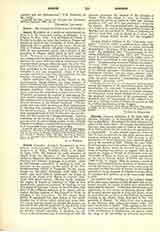

Jansen (JANSENS, JANSSEN, JANSSENIUS or JANSENIUS GANDAVIENSIS), CORNELIUS, THE ELDER, exegete, b. at Hulst, Flanders, 1510; d. at Ghent, April 11, 1576. He received his early education at Ghent from the Brethren of the Common Life (called at Ghent the Hieronymites), and later studied theology and Oriental languages at Louvain. After he had become a licentiate of theology in 1534, he lectured, at the request of the abbot of the Premonstratensian Abbey of Tongerloo, to the young monks on the Holy Scriptures until 1542, from which date until 1562 he discharged the duties of pastor of the parish of St. Martin at Courtrai (Kortryk) with great success. Having finally attained the degree of Doctor of Theology in 1562, he was immediately appointed professor of theology at the University of Louvain, became in the following year dean of the collegiate seminary of St. James, and attended the last sessions of the Council of Trent as delegate of the university. On his return, King Philip II appointed him first bishop of the newly founded See of Ghent, which dated only from 1559. For a long time he refused to assume the dignity, on account of the difficult conditions in the diocese, and was not preconized until 1568, by Pius V. As bishop he devoted himself especially to checking the advance of Protestantism, and to carrying out with the greatest exactness the decrees of the Council of Trent. With this object in view, he founded a seminary for priests at Ghent in 1569, held diocesan synods in 1571 and 1574, and published a ritual for his diocese. He was entrusted with the compilation of a ritual to be used in the ecclesiastical province of Mechlin, but did not finish it. While at Tongerloo he wrote a great deal, and, as pastor at Courtrai, had already become widely known for his exegetical work.
Among Jansen’s writings is the “Concordia evangelica” (Louvain, 1549), to which he later added the “Commentarius in Concordiam et totam historiam evangelicam” (Louvain, 1572), undoubtedly his best work. He published also: “Commentarius in Proverbia Salomonis” (Louvain, 1567), and “Commentarius in Ecclesiasticum” (Louvain, 1569), both of which were republished in one work at Antwerp in 1589; “Commentarius in omnes Psalmos Davidicos” (Louvain, 1569), with an introduction to each psalm, an excellent paraphrase of the text, and explanations of the difficult passages; “Paraphrases in ea Veteris Testamenti Cantica, quae per ferias singulas totius anni usus ecclesiasticus observat” (Louvain, 1569). After his death appeared “Annotations in Librum Sapientiae” (Louvain, 1577).
Cornelius Jansen was one of the most distinguished among the exegetes of the sixteenth century, and his masterpiece, the aforesaid “Concordia Evangelica”, was epoch-making in the history of Catholic exegesis, for he insisted on the literal interpretation, as against the mystical interpretation of his predecessors, emphasized also the importance of the original text, and of a profound study of Oriental languages as aids to a full comprehension of the Vulgate.
PATRICIUS SCHLAGER

